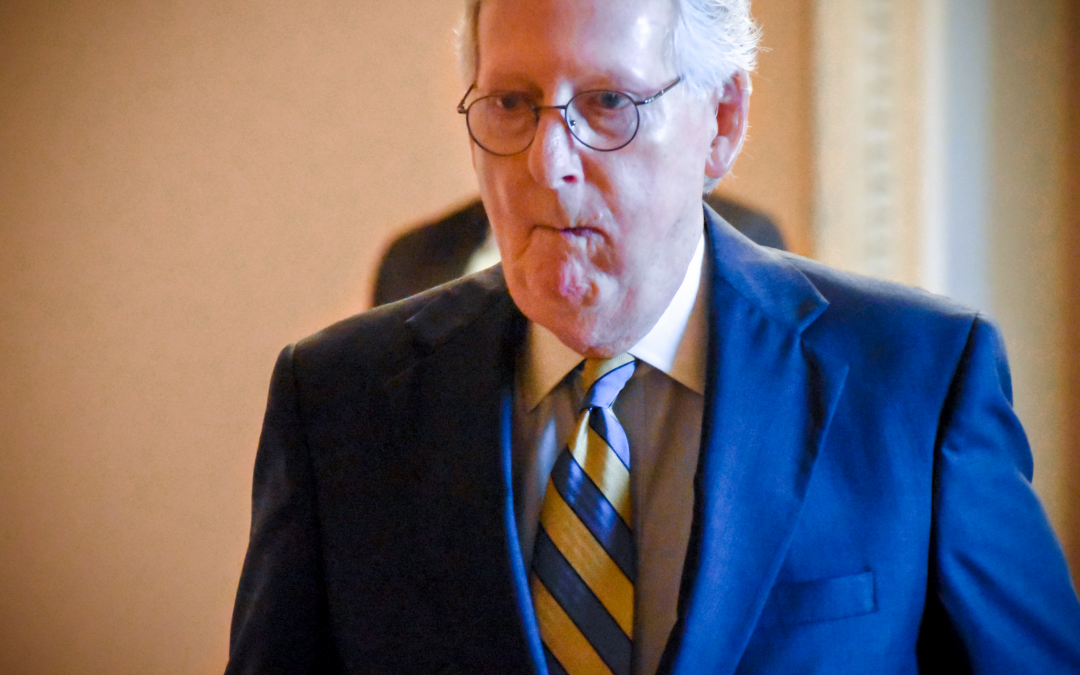WASHINGTON – In a surprising move, Senate Minority Leader Mitch McConnell offered to help Democrats in their effort to raise the debt limit on Wednesday. After stonewalling the issue for weeks, including tanking a similar vote on Sept. 27, McConnell’s last-minute turnabout has many scratching their heads.
Although the vote to raise the debt limit did not occur by Wednesday night, Senate Democrats emerged from a caucus meeting united in their message that McConnell “caved.” Sen. Sheldon Whitehouse, D-R.I., tweeted that Democrats now have “until December to do Build Back Better,” referring to the $3.5 trillion Biden administration plan that has stalled in Congress. However, at least one senator was wary of McConnell’s unusual move: Sen. Mazie Hirono, D-Hawaii, called the offer “bullshit,” prior to the Democratic caucus meeting.
Because Republicans now have joined the effort to raise the debt limit, McConnell could end up with more leverage in December when the government is expected to hit the debt ceiling again. December is also the month that federal funding expires for most government programs: Democrats narrowly avoided a government shutdown last week by extending the funding until then.
If Republicans had continued to prevent Democrats from raising the debt ceiling, Senate Majority Leader Chuck Schumer, D-N.Y., would have had only a few options to move forward.
One option was to pass a budget bill solely with Democrat votes through a process called reconciliation – but this process can be slow. Senate Democrats had worried that they would not be able to resolve the issue before Oct. 18, when the government would have had no more ability to borrow and could have started defaulting on loans. Now that Democrats have taken up McConnell’s offer to raise the debt ceiling short-term, they have also agreed to avoid using reconciliation for the same issue long-term.
Another choice, called the “nuclear option,” would have carved debt ceiling-related legislation out of the filibuster rules so that it would only need a simple majority to pass. This option was floated by Senate Democrats and called a “real possibility” by President Joe Biden on Tuesday. However, Democrats would have needed the support of moderate Sens. Joe Manchin, D-W.Va., and Kyrsten Sinema, D-Ariz., who have generally been against changing filibuster rules.
McConnell historically has used the issue of the debt ceiling as leverage for policy negotiations. However, this time around, McConnell said to Biden in a letter that the Republicans have “no list of demands.”
Entering Wednesday, Democrats were prepared for their vote to raise the debt ceiling to fail. In a Sept. 28 speech on the Senate floor, McConnell said that “there is no chance Republicans will help lift Democrats’ credit limit so they can immediately steamroll through a socialist binge that will hurt families.” Democrats have been quick to point out that Senate Republicans raised the debt ceiling three times during Donald Trump’s presidency.
Without Republican cooperation, Democrats believed that it would be extremely difficult for them to raise the debt limit by Oct. 18 either through reconciliation or the “nuclear option.”
The U.S. has never defaulted on its debt obligations, meaning it has always paid its bills on time. Treasury Secretary Janet Yellen made clear in an essay in the Wall Street Journal that failing to do so would “produce widespread economic catastrophe.” Initially, some of the most affected could include over 50 million seniors who receive Social Security. However, since confidence in the economy would collapse, stock prices could plummet and interest rates could skyrocket, ultimately leading to “recession, with billions of dollars of growth and millions of jobs lost,” Yellen wrote.


